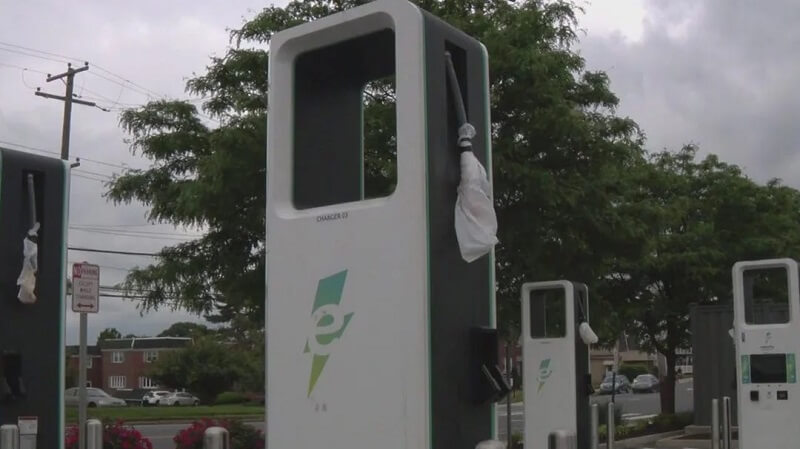An electric vehicle owner in Philadelphia was disappointed to see that an undesirable trend was sweeping their city — the vandalism of EV chargers to harvest expensive copper wiring.
They posted about it in the subreddit r/ElectricVehicles, saying: "I know this has been happening for a while, but as a new EV owner in Philadelphia, this sucks."

Commenters were similarly frustrated by an experience similar to pulling into a gas station to find all pumps stolen.
"They need to make this a federal offense," one wrote.
Other commenters had witnessed similar actions targeting EV owners and charging stations. "Just the other day I came across a Corolla blocking one of the two spots for a one plug charger (the only one in town, in a wide open parking lot with many other spaces)," one person wrote.
"This is nothing short of an attack on America's critical transportation infrastructure," another agreed. "Copper thieves and vandals need to be arrested and prosecuted with severe felony charges. It's just a relatively few perpetrators but they do severe damage and prison is where they need to be."
Unfortunately, it would be nearly impossible to keep up with the surging rates of EV charger vandalism; several cities have seen more than half of their public stations repeatedly destroyed. Similar incidents of copper theft are even happening with Europe's rail lines.
And while sometimes the vandals seem intent on harvesting precious metals to make some money, that's not always the case. Instead, this destruction is often done to make a political, anti-environmental statement.
Gas-powered drivers have been witnessed intentionally blocking chargers, vandalizing and destroying them, and even coal-rolling EVs (and even pedestrians and cyclists) with toxic fumes.
The irony, of course, is that switching to an EV is not only better for the environment and for everybody's future — only emitting approximately half the planet-warming pollutants of a comparable gas-powered car — but it's cheaper too. Making the switch saves the average owner thousands of dollars in the course of the car's lifetime, both in fuel costs and tax credits. Electric vehicles are also famously easier to maintain than fossil fuel vehicles.
One commenter pointed out that it was safer and cheaper to charge at home, and while that isn't currently possible for all EV owners, charging accessibility is predicted to continue to improve.
Join our free newsletter for easy tips to save more, waste less, and help yourself while helping the planet.









